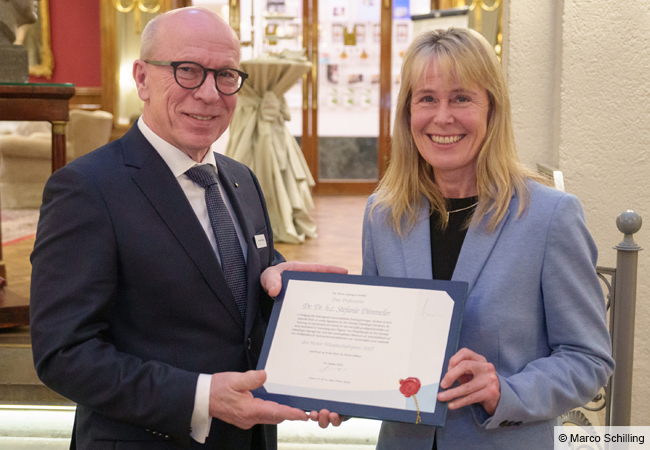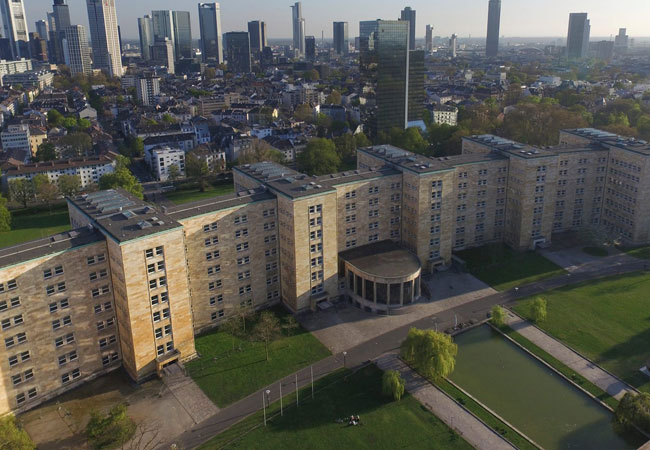Extensive aid programs for companies during the COVID-19 pandemic also saved firms whose survival was not socially desirable. This is shown by a study of the Leibniz Institute for Financial Research SAFE, in which Professor Leo Kaas from Goethe University Frankfurt was involved.

The COVID-19 pandemic triggered a short but severe recession. Countries worldwide tried to mitigate its consequences through federal aid programs, especially for small companies. When governments paid these federal aids without a needs assessment, certain firms survived in the market, although their bankruptcy would have been the better alternative. This is the result of a Leibniz Institute for Financial Research SAFE Working Paper based on an analysis of the US-American COVID-19 “Paycheck Protection Program” (PPP).
The SAFE analysis compares the PPP, which distributed federal aid by scattergun approach, with a hypothetical scenario where governments paid funds to targeted companies. “Both scenarios would have a comparable percentage of saved companies. However, the share of zombie firms that have been artificially held in the market lies at 1.3 percent compared to 16.6 percent due to the PPP”, says Leo Kaas, SAFE Fellow and Professor of Macroeconomics and Labor Markets at Goethe University Frankfurt and one of the authors of the Working Paper.
Support for unproductive companies affects the overall economy
Accordingly, the PPP prevented 35 percent of all small US business liquidations at the beginning of the COVID-19 pandemic. “Although the program prevented a massive wave of business deaths, it did not increase overall economic production nor employment,” says Kaas. The SAFE analysis identifies two main reasons for this. Both relate to the fact that there was no needs assessment for the companies before the payment.
First, the federal aids rescued predominately small, unproductive companies. Second, the PPP often prevented workers from leaving these firms instead of migrating to more productive companies. The bottom line is that the policy had no positive impact on economic growth and employment.
Especially small companies suffered severe losses in production, turnover, and employment during the COVID-19 pandemic. Thus, the US government established the “Coronavirus Aid, Relief, and Economic Security Act (CARES Act)” in March 2020. This law granted the “Paycheck Protection Program” (PPP) more than 600 billion US dollars so that small companies (i.e., companies with fewer than 500 employees) could be saved without an additional needs assessment. In the year 2020, more than three-quarters of all small US firms received PPP loans, of which most were remitted.
Publication: Alessandro Di Nola, Leo Kaas, Haomin Wang: Rescue Policies for Small Businesses in the COVID-19 Recession. SAFE Working Paper No. 343 (2022) https://papers.ssrn.com/sol3/papers.cfm?abstract_id=4064899
Further Information:
Professor Leo Kaas
Professor of Macroeconomics and Labor Markets
Goethe University Frankfurt and
Leibniz Institute for Financial Research SAFE
Phone +49 (0)69 798 33835
kaas@wiwi.uni-frankfurt.de
https://www.wiwi.uni-frankfurt.de/
https://safe-frankfurt.de/







